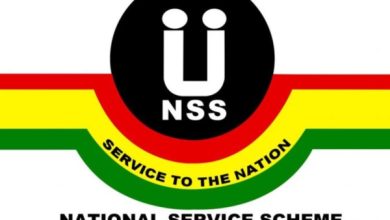Avoid past mistakes of excessive borrowing – IMF warns Ghana

The International Monetary Fund (IMF) has urged the government of Ghana to exercise restraint in borrowing to avoid repeating past mistakes of excessive and high-cost debt accumulation.
Speaking on Channel One TV’s The Point of View with Bernard Avle, on Monday, November 3, the IMF Resident Representative to Ghana, Dr. Adrian Alter, said the Fund has advised the government to prioritise concessional financing and maintain a balanced borrowing strategy under the ongoing IMF-supported programme.
“On the borrowing side, we have advised the government to be extremely prudent—not to go back to the same mistakes of excessive and expensive borrowing in the past,” Dr. Alter said.
He explained that Ghana should rely on low-interest financing from multilateral institutions such as the World Bank and the African Development Bank, rather than return to the international capital markets, where borrowing costs remain high.
“When you have available concessional financing from multilateral agencies like the World Bank, the African Development Bank, and the IMF loan on concessional terms, you shouldn’t go to the international market where the interest rates are currently extremely pricy,” he stated.
Dr. Alter noted that although global financial conditions have eased somewhat, interest rates remain elevated.
He said that given Ghana’s current credit rating, any potential borrowing on the international market would likely attract interest rates around 10% or higher.
He further explained that the IMF programme sets clear limits on external borrowing to ensure debt sustainability and compliance with creditor agreements.
“The government has a mix of about 70% domestic versus 30% external borrowing,” Dr. Alter said, adding that the Fund has been working closely with the government to lengthen the maturity of domestic debt instruments beyond the current one-year average.
He expressed optimism that by early 2026, conditions would be favourable for Ghana’s domestic bond market to reopen, allowing for a more stable and diversified financing environment.
The IMF continues to monitor Ghana’s progress under the ongoing Extended Credit Facility programme, which aims to restore macroeconomic stability, ensure debt sustainability, and support growth.




